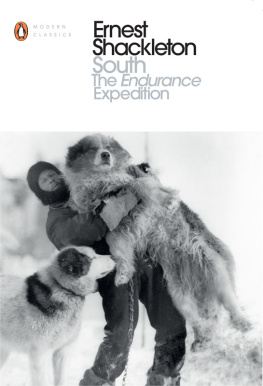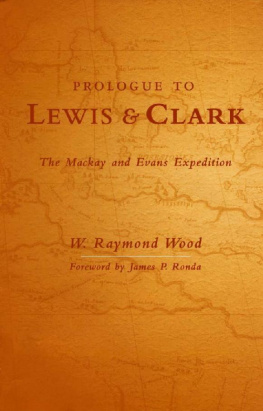
The author and publisher have provided this e-book to you for your personal use only. You may not make this e-book publicly available in any way. Copyright infringement is against the law. If you believe the copy of this e-book you are reading infringes on the authors copyright, please notify the publisher at: us.macmillanusa.com/piracy.
For Ann
The tower, which was not supposed to be there, plunges into the earth in a place just before the black pine forest begins to give way to swamp and then the reeds and wind-gnarled trees of the marsh flats. Beyond the marsh flats and the natural canals lies the ocean and, a little farther down the coast, a derelict lighthouse. All of this part of the country had been abandoned for decades, for reasons that are not easy to relate. Our expedition was the first to enter Area X for more than two years, and much of our predecessors equipment had rusted, their tents and sheds little more than husks. Looking out over that untroubled landscape, I do not believe any of us could yet see the threat.
There were four of us: a biologist, an anthropologist, a surveyor, and a psychologist. I was the biologist. All of us were women this time, chosen as part of the complex set of variables that governed sending the expeditions. The psychologist, who was older than the rest of us, served as the expeditions leader. She had put us all under hypnosis to cross the border, to make sure we remained calm. It took four days of hard hiking after crossing the border to reach the coast.
Our mission was simple: to continue the governments investigation into the mysteries of Area X, slowly working our way out from base camp.
The expedition could last days, months, or even years, depending on various stimuli and conditions. We had supplies with us for six months, and another two years worth of supplies had already been stored at the base camp. We had also been assured that it was safe to live off the land if necessary. All of our foodstuffs were smoked or canned or in packets. Our most outlandish equipment consisted of a measuring device that had been issued to each of us, which hung from a strap on our belts: a small rectangle of black metal with a glass-covered hole in the middle. If the hole glowed red, we had thirty minutes to remove ourselves to a safe place. We were not told what the device measured or why we should be afraid should it glow red. After the first few hours, I had grown so used to it that I hadnt looked at it again. We had been forbidden watches and compasses.
When we reached the camp, we set about replacing obsolete or damaged equipment with what we had brought and putting up our own tents. We would rebuild the sheds later, once we were sure that Area X had not affected us. The members of the last expedition had eventually drifted off, one by one. Over time, they had returned to their families, so strictly speaking they did not vanish. They simply disappeared from Area X and, by unknown means, reappeared back in the world beyond the border. They could not relate the specifics of that journey. This transference had taken place across a period of eighteen months, and it was not something that had been experienced by prior expeditions. But other phenomena could also result in premature dissolution of expeditions, as our superiors put it, so we needed to test our stamina for that place.
We also needed to acclimate ourselves to the environment. In the forest near base camp one might encounter black bears or coyotes. You might hear a sudden croak and watch a night heron startle from a tree branch and, distracted, step on a poisonous snake, of which there were at least six varieties. Bogs and streams hid huge aquatic reptiles, and so we were careful not to wade too deep to collect our water samples. Still, these aspects of the ecosystem did not really concern any of us. Other elements had the ability to unsettle, however. Long ago, towns had existed here, and we encountered eerie signs of human habitation: rotting cabins with sunken, red-tinged roofs, rusted wagon-wheel spokes half-buried in the dirt, and the barely seen outlines of what used to be enclosures for livestock, now mere ornament for layers of pine-needle loam.
Far worse, though, was a low, powerful moaning at dusk. The wind off the sea and the odd interior stillness dulled our ability to gauge direction, so that the sound seemed to infiltrate the black water that soaked the cypress trees. This water was so dark we could see our faces in it, and it never stirred, set like glass, reflecting the beards of gray moss that smothered the cypress trees. If you looked out through these areas, toward the ocean, all you saw was the black water, the gray of the cypress trunks, and the constant, motionless rain of moss flowing down. All you heard was the low moaning. The effect of this cannot be understood without being there. The beauty of it cannot be understood, either, and when you see beauty in desolation it changes something inside you. Desolation tries to colonize you.
As noted, we found the tower in a place just before the forest became waterlogged and then turned to salt marsh. This occurred on our fourth day after reaching base camp, by which time we had almost gotten our bearings. We did not expect to find anything there, based on both the maps that we brought with us and the water-stained, pine-dust-smeared documents our predecessors had left behind. But there it was, surrounded by a fringe of scrub grass, half-hidden by fallen moss off to the left of the trail: a circular block of some grayish stone seeming to mix cement and ground-up seashells. It measured roughly sixty feet in diameter, this circular block, and was raised from ground level by about eight inches. Nothing had been etched into or written on its surface that could in any way reveal its purpose or the identity of its makers. Starting at due north, a rectangular opening set into the surface of the block revealed stairs spiraling down into darkness. The entrance was obscured by the webs of banana spiders and debris from storms, but a cool draft came from below.
At first, only I saw it as a tower. I dont know why the word tower came to me, given that it tunneled into the ground. I could as easily have considered it a bunker or a submerged building. Yet as soon as I saw the staircase, I remembered the lighthouse on the coast and had a sudden vision of the last expedition drifting off, one by one, and sometime thereafter the ground shifting in a uniform and preplanned way to leave the lighthouse standing where it had always been but depositing this underground part of it inland. I saw this in vast and intricate detail as we all stood there, and, looking back, I mark it as the first irrational thought I had once we had reached our destination.
This is impossible, said the surveyor, staring at her maps. The solid shade of late afternoon cast her in cool darkness and lent the words more urgency than they would have had otherwise. The sun was telling us that soon wed have to use our flashlights to interrogate the impossible, although Id have been perfectly happy doing it in the dark.
And yet there it is, I said. Unless we are having a mass hallucination.
The architectural model is hard to identify, the anthropologist said. The materials are ambiguous, indicating local origin but not necessarily local construction. Without going inside, we will not know if it is primitive or modern, or something in between. Im not sure I would want to guess at how old it is, either.
We had no way to inform our superiors about this discovery. One rule for an expedition into Area X was that we were to attempt no outside contact, for fear of some irrevocable contamination. We also took little with us that matched our current level of technology. We had no cell or satellite phones, no computers, no camcorders, no complex measuring instruments except for those strange black boxes hanging from our belts. Our cameras required a makeshift darkroom. The absence of cell phones in particular made the real world seem very far away to the others, but I had always preferred to live without them. For weapons, we had knives, a locked container of antique handguns, and one assault rifle, this last a reluctant concession to current security standards.
Next page











